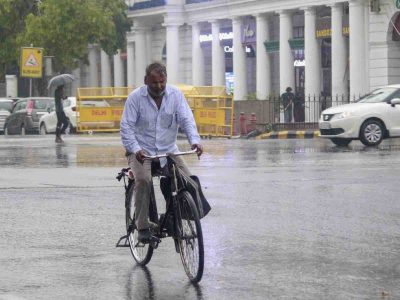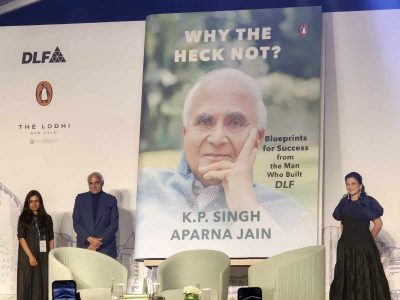Earlier this month, Gautam Padmanabhan, the CEO of Westland publishers, officially announced that the publishing house will be shut down and all operations will be closed for employees and authors. The news came five years after Amazon had decided to take over Westland with the intent of augmenting the publisher’s operations and success. However, things went downhill for reasons unknown to the public.
Previously known as EastWest books, the publishing company was counted as one of the top distributors of books across the globe. However, in 2007, the company made a shift to publishing when it became a subsidiary of Tata’s Trent Limited. Known for working with authors like Amish Tripathi, Devdutta Naik, Josy Joseph, Jack Canfield, Joshua Pollock and other celebrated writers, Westland left an irreplaceable mark in the literary sphere. It even risked giving opportunities to young and new authors and content that deviated from the mainstream.
The decision has left those associated with Westland in a shock – especially the authors who were were going to release their books through Westland soon. To understand the consequences of this closure, Patriot talked with author Sharanya Manivannan who recently released two of her books – Mermaids In The Moonlight and Incantations Over Water that form her Ila duology of illustrated books – through Westand. Speaking about working with the publishing company, Manivannan said that Westland had warmly supported taking the risk of putting her two full-colour books out in the pandemic for which she is grateful.
Evidently, the closure of Westland has hit her hard and she has found it difficult to cope with it. “I am still coping. How does one get over knowing that one’s books will disappear? The first few days, I grieved the way one does after a sudden death – unshowered, weeping jags, dropping the ball on all work, forgetting things, insomnia. Then I shifted gears in order to get the word out as soon as possible, putting out information on social media about the closure and how readers can support us”, she says.
Manivannan has been using her social media page to reach out to readers and spread awareness about Westland’s legacy while gathering support for the authors. “So much depends on what readers do right now. 15 February is the deadline for bookstores to place their final orders of most of the catalogue. The size of those orders depends entirely on how many purchases of each title happen before then. So readers must use their purchasing power. They can also get libraries at institutions they are connected with to order books by that date. I encourage those who can afford it to donate books to free community libraries. These efforts could go a long way to ensure that as few copies of our books are pulped as possible. Books need readers – that is always true, but now more than ever”, she says.
In recent years, Westland published several books that were critical of the government, making them stand apart in the current list of publishers. Aakar Patel’s Price of The Modi Years, The Mahatma and The Italian Bramhin by Manu Pillai and The Silent Coup by Josy Joseph are a few examples of such books. According to Disha Varrier, an Instagram influencer who has been urging readers to support Westland and its books, “Amazon’s involvement and Westland’s choice to publish books critical of the government have collided sooner than later. We believe that Westland is bearing the brunt of government pressure.”
However, when we talked with an employee of Westland who wished to remain unnamed, they said, “They didn’t tell us the reason when we were notified about the closure. They still haven’t. They made an ambiguous remark implying it had something to do with the direction Westland operations was heading in and the lack of revenue that was being generated.”
While this lack of clarity surrounding the closure has irked several people and made them question Amazon’s intentions, an Amazon spokesperson has stated that the corporate giant regrets the closure but had to go forward with it considering the operations and revenue. To smoothen the transition, they are also working closely with the employees, agents, distribution partners and authors to get them the help they need, the spokesperson said. However, Manivannan has informed that no Amazon representatives have reached out to her yet. “I am in touch only with other authors and the Westland team”, she says.
The closure of Westland has left a dent in the publishing industry and raised questions about the involvement of readers. Many have pointed out that the lack of reading habits in today’s generation has led to reduced sales, which could be a primary reason behind the closure. Speaking about the reader’s role in such a milieu, Manivannan says, “While there’s great speculation about the causes of this sudden shutdown, one thing we know conclusively is that book sales have declined in India in the last few years. I hope that this tragedy encourages readers to reflect on their roles as consumers of the arts at large, and that it instigates them to find out more about the sustainability issues involved.”
The operations at Westland will cease on 31 March, and sales for some books will end on 28 February, while for the newer books, it would end on 31 March. Post the closure, the rights to the authors’ work – currently owned by Westland – will revert to them on 1 April, unless Westland is acquired by a third party. The remaining stocks of the book will be pulped.
For more stories that cover the ongoings of Delhi NCR, follow us on:
Instagram: https://www.instagram.com/thepatriot_in/
Twitter: https://twitter.com/thePatriot_in
Facebook: https://www.facebook.com/Thepatriotnewsindia





